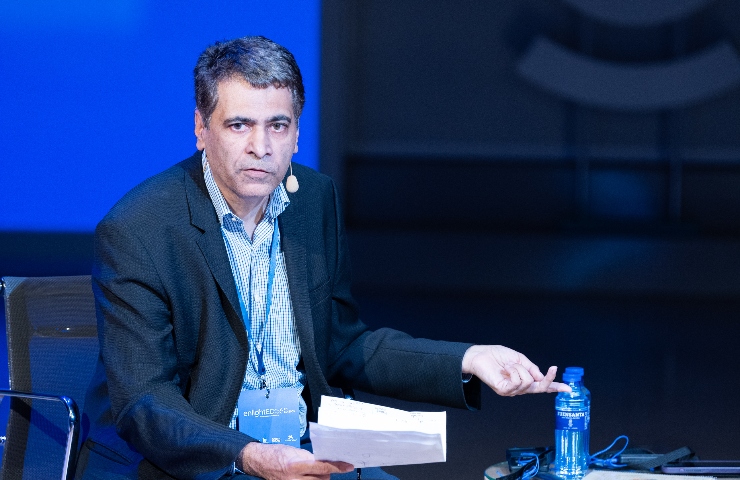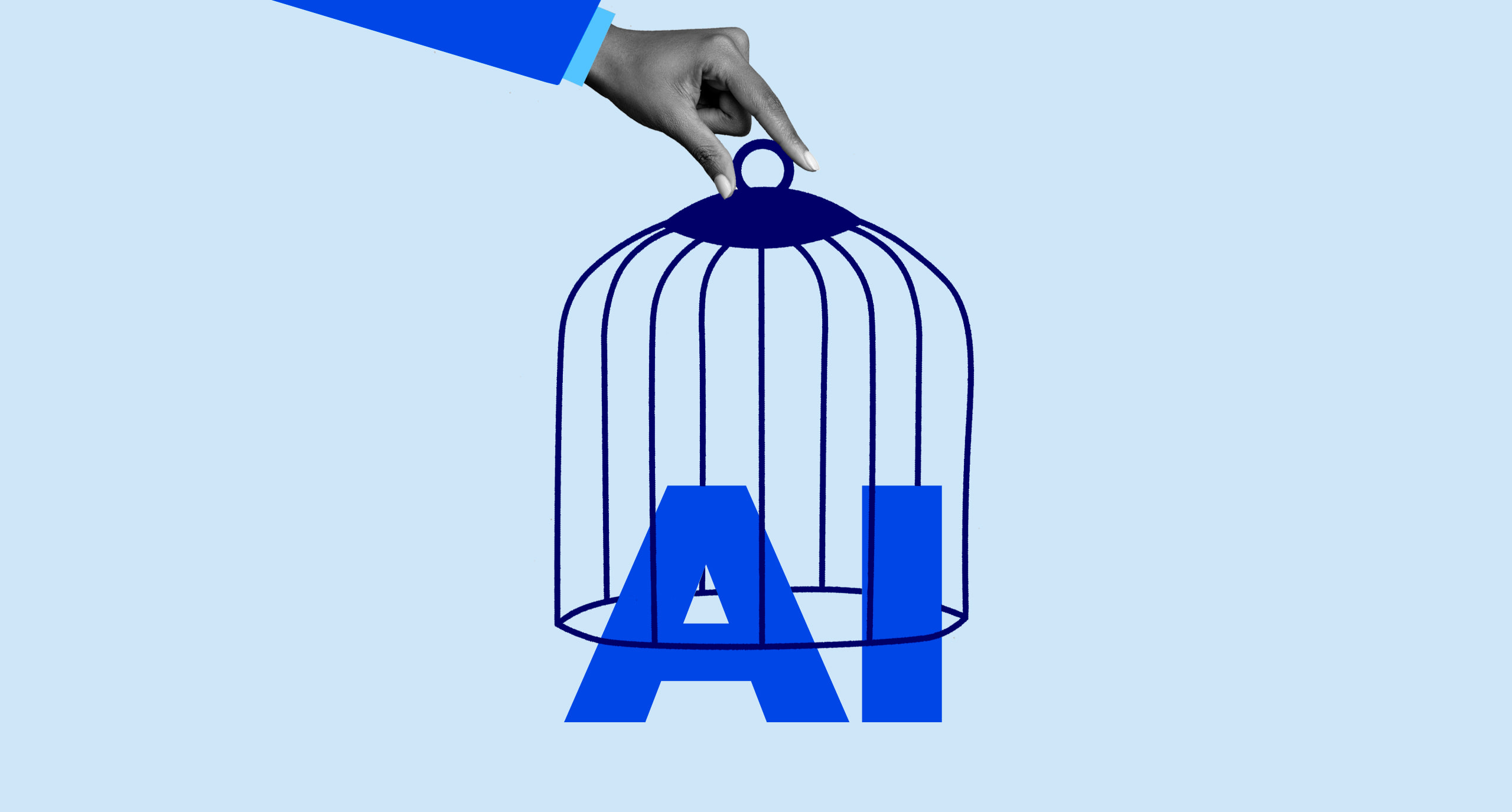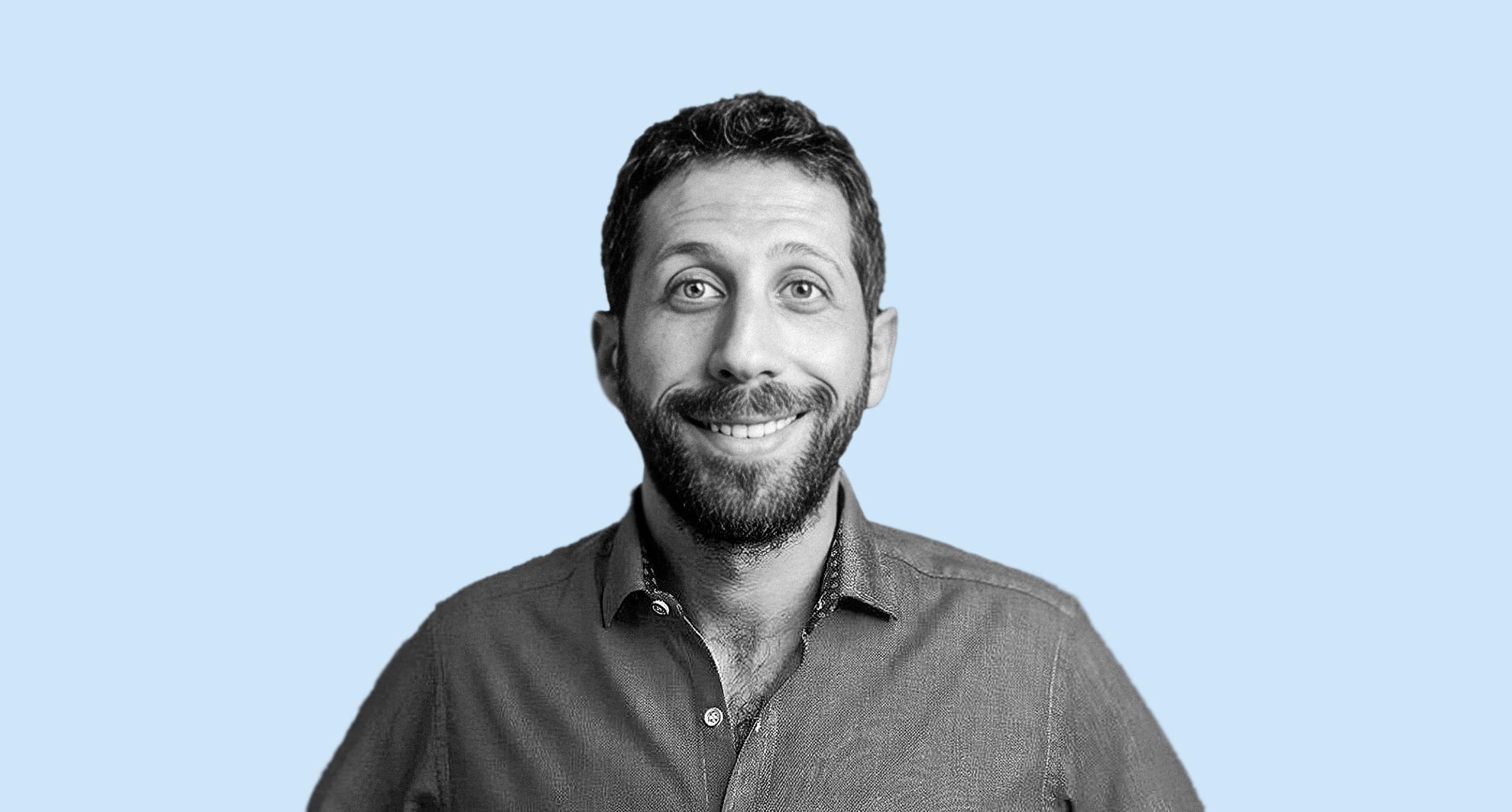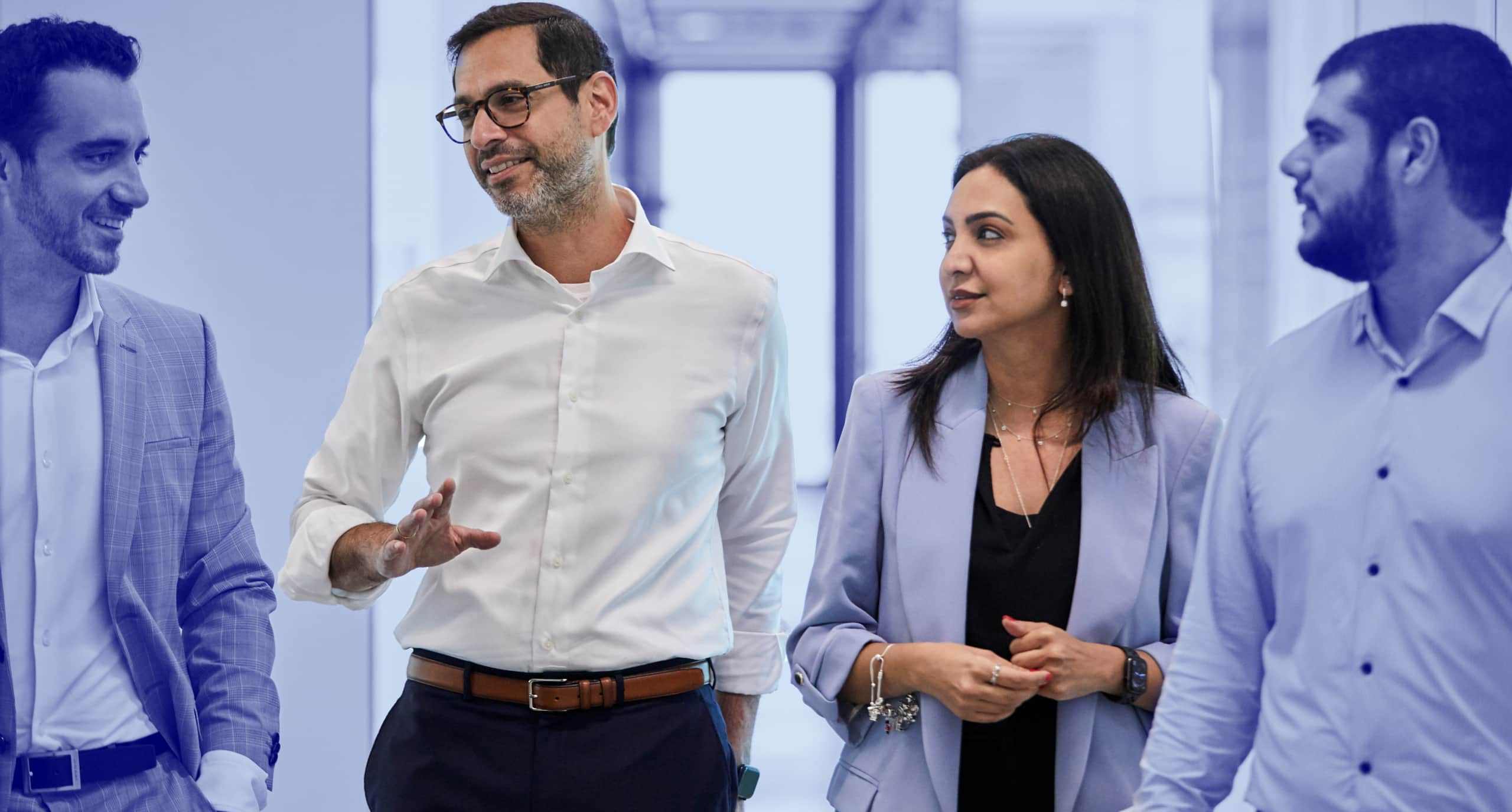This fall, Madrid’s iconic Espacio Fundación Telefónica building played host to enlightED 2023, the world’s leading conference on education, technology and innovation. enlightED is a joint initiative by IE University, Fundación Telefónica, South Summit and the “la Caixa” Foundation that is currently in its sixth year running. Over the course of two days, some 2,500 attendees packed the auditorium for a series of inspiring talks reflecting on the potential of generative artificial intelligence in the fields of education, entrepreneurship, ethics, and employment.
At enlightED 2023
This year’s program featured over 30 workshops, panel discussions and debates headed by some of the brightest minds from around the world. They all gathered in the heart of the Spanish capital to discuss how AI could transform learning and the labor market. With more than 50 speakers in attendance, they shared valuable insights and perspectives from varying ends of the spectrum.
Education was the main order of the day, and during his opening address, IE University president Santiago Íñiguez stressed the importance of innovation in higher learning. Dean of IE Business School Lee Newman later took to the stage for the first fireside chat of the event. He was joined by Dr. Daniel Susskind, an economics professor at King’s College London and a senior research associate at the Institute for Ethics in AI at Oxford University. Daniel’s keynote speech examined the potential societal impact of the AI revolution, specifically posing the question: will there be enough work for everyone in the 21st century?
Future-proof training
To address technological unemployment, Daniel explained that society would first have to deal with three main problems, using the outbreak of COVID-19 as a reference. “The pandemic gave us a glimpse of what a world without work might look like. We faced three key issues: inequality, power and meaning.” However, it wasn’t because robots took over the job market. Rather, it was due to the decrease in demand that so many occupations relied on. “These are the sorts of challenges we might encounter in a world with less work,” he added.
So then, what skills should we be teaching the next generation to ensure they’ll be future-proof in the workforce? “Students should not be encouraged to cut their teeth on routine activities,” he said, arguing that this was where much of the current system emphasized. Instead, they should focus on tasks that foster communication, creativity, and interpersonal skills. At IE University, we couldn’t agree more—in fact, this belief led us to recently launch the IE School of Humanities, with the aim of preparing critical thinkers capable of navigating complexity with a human-centered lens. Ikhlaq Sidhu, dean of IE School of Science & Technology, would later expand on this, reflecting on how educators can teach math or logic, but are often unable to teach behaviors or mindsets, even though success often comes down to these things. For him, it was clear that a shift in the education system is required if we are going to address this profound societal challenge.

“We teach people math or logic, but we don’t usually teach behaviors or mindsets. When people are successful in the world, it’s due to these things.” –Ikhlaq Sidhu
New methods for a new era
It was fitting, then, that the next session, entitled “How will AI transform education?”, should feature two prominent thought leaders in the field: Esther Wojcicki, renowned American educator, and Edo Segal, AI proponent and the founder and CEO of TouchCast.
“When anything new is introduced into the education system, the number-one reaction is fear,” Esther began, adding, “School districts banned calculators when they were first introduced.” Further, despite scientific consensus that lecturing is the least effective way to teach, it is still the predominant approach utilized around the world. Both panelists agreed artificial intelligence is on the cusp of revolutionizing education for the better.
Edo Segal noted the biggest downside of this current format is the loss of truly bright minds, explaining how AI would help reverse the trend: “The medium of conversation is a hundred times more potent than just saying, ‘Here’s a book.’ Now, we can offer one-on-one tutoring to curious minds around any content base.”
Make learning more accessible
Day two of the conference brought a thought-provoking talk from Priya Lakhani, the passionate founding CEO of CENTURY Tech, who discussed the shift away from relying on physical mediums like books and computers in the classroom. “Just imagine this gets replaced by a living medium. What are the implications for learning?”
Today, AI in education is capable of aiding personalized learning, providing intelligent tutoring, automating grading and translating languages in real time. In other words, its impact is already being felt. Priya’s goal at CENTURY Tech, though, is to harness AI’s capacity to target specific students’ knowledge gaps.
The platform is already developing tools that will help tailor learning and allow teachers to move away from traditional one-size-fits-all methods. These tools will prove particularly valuable to neurodivergent students who are often overlooked in the current educational model. At IE University, we embrace personalized learning and actively seek out novel ways to use technology—including AI—to deliver just that. To that end, we’ve established the Liquid Learning Catalyst Unit, a group of passionate pedagogy experts who ensure we stay at the cutting edge of learning innovation.
Bringing humanity to tech
The world’s first professor of AI & Work, Carl Benedikt Fray, was the final keynote speaker at enlightED 2023. He stressed this is not the first time technology has profoundly impacted the political economy and explained that historically, we have always responded to such shifts through education.
“There are still three key bottlenecks to automation: creativity, complex social interactions and navigating unstructured environments,” he said. Indeed, a common theme throughout the two-day event was the need to champion the use of AI through the lens of the humanities. It is the only way to ensure that our transition to a more digital, tech-based world is both empathetic and ethical. Consequently, focusing on human interaction and creativity rather than formulaic, routine tasks, much as Daniel Susskind proposed in his opening speech, will be key to teaching moving forward.
The future of education
Closing out this year’s event, various speakers, including IE University’s Diego del Alcázar Benjumea and Telefónica CEO José María Álvarez-Pallete, emphasized the importance of bridging the digital divide. Ensuring every student has equal access to the tools that will drive education in the coming years will be a challenge. But as Spain’s Minister for Education and Vocational Training, Pilar Alegría, reflected in her final remarks, “We all have a responsibility to work towards AI permitting an ethical, responsible, safe education for all.”
At the forefront of education
Experience a holistic, future-focused education in a cutting-edge setting.






